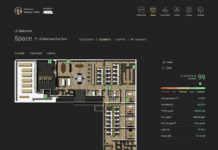By Carrie Schuster
You’ve likely heard the saying, “Going green is good for business.” Well, there is actually a lot of truth behind it. Today’s buyers seek out businesses that are driving social and environmental change, meaning corporate sustainability is more than just a buzzword — it has the power to instill trust in consumers and build brand value.
Whether it’s switching to renewable energy, creating new products from recycled material, or developing smart buildings that monitor room temperature and lighting, many companies are leveraging their influence to make an impact on the environment and foster sustainable solutions. By finding ways to do more with less, facilities are not only reducing their environmental footprint, but also are optimizing operations and improving guests’ and staff experiences.
The concept of zero-waste, which has become increasingly popular among facilities and businesses, has helped companies deliver on their commitment to sustainability by ensuring products are reused, redesigned, or recycled. Many cities throughout the world have adopted zero-waste goals or policies, and as a result, have reaped operational and financial benefits.
Here are a few ways that you can integrate sustainable, zero-waste strategies into your daily business operations.
Implement A Composting Program
According to the Institute for Local Self-Reliance (ILSR), we have the ability to reuse, recycle, or compost up to 90% of municipal solid waste generated in the U.S. each year. Unfortunately, almost 95% of the food we dispose of ends up in landfills or incinerators. To prevent this, companies can start their own composting programs and encourage employees and patrons to put food waste, used napkins, and paper towels into compost bins throughout their facility. Though sometimes perceived as unsanitary, composting can actually help save money, improve employee satisfaction, and meet the needs of today’s environmentally conscious consumers.
Reduce, Reuse, And Redesign
One of the most effective and simple steps toward achieving zero-waste is reducing overall consumption. By making small changes, such as investing in one-at-a-time paper towel and napkin dispensers that decrease the number of paper products used, facilities are able to reduce their consumption while improving hygiene.
It’s even better if those products are made from reusing a facility’s own and locally sourced recycled office paper and cardboard through a closed loop recycling program. Many companies have had success incorporating such circularity practices into their business models. For example, Ford utilizes closed-loop recycling to turn aluminum scraps into Ford F-150 trucks, and Dell recycles post-consumer plastics to create new computers.
On the contrary, materials that aren’t suitable for reuse can be transformed into insulation or repurposed to make other materials, such as furniture, shoes, and packaging. For instance, California-based MotoArt Studios redesigns retired airplane parts into usable products — like fuselages into conference tables, wings into corporate executive desks, and windows into mirrors.
Innovating To Sustainability
In today’s world, innovation is driving sustainability. Many businesses have integrated smart technology into their facilities, which allow managers to monitor a room’s temperature and lighting. Furthermore, innovations such as smart restroom dispensers, which provide real-time information about dispenser refill levels and washroom usage, help improve cleaning operations by alerting staff members what’s needed where and when.
Making small adjustments can go a long way when it comes to sustainability. However, the biggest key to successfully changing behavior is educating employees and patrons about the importance of sustainable programs and solutions. By spreading the word about reducing environmental footprint and zero-waste initiatives, you can help make strides toward a sustainable future.
Schuster is brand communications manager of Sustainability, Hygiene and Services NA/EU for Essity, a global provider for hygiene and health needs, and the makers of the Tork brand of professional hygiene products. Schuster consults and partners with customers to develop programs with the goal of achieving sustainability through zero waste, closed-loop recycling, and composting initiatives.


















![[VIDEO] Collect Asset Data at the Speed of Walking a Building](https://facilityexecutive.com/wp-content/uploads/2024/02/maxresdefault-324x160.jpg)